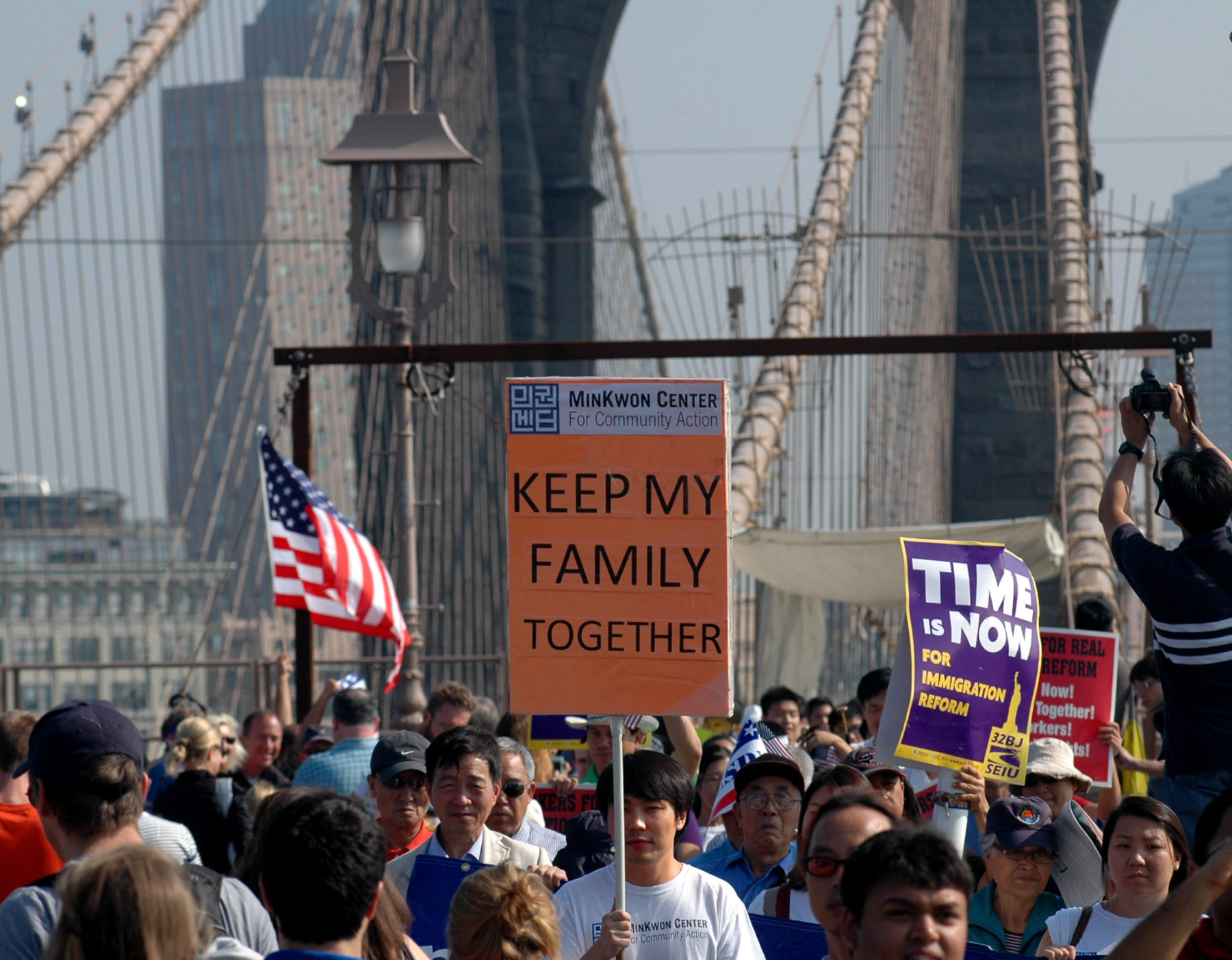
Last fall, President Joe Biden’s Administration announced a proposed rule to strengthen Deferred Action for Childhood Arrivals, a program implemented by former President Barack Obama that temporarily shields immigrants who were brought to the United States as children from deportation and provides them with work permits.
The rule would remake the program, also known as DACA, which, at last tally, counts 590,070 recipients, according to the U.S. Citizenship and Immigration Services. In notable ways, the measure would insulate the program from legal challenges that threaten its existence, calling on the Department of Homeland Security (DHS) to exercise “prosecutorial discretion” for certain noncitizens who came to the country as minors. It would also make it optional for DACA applicants to seek a work permit, rather than making it part of the application process.
“It creates a stronger legal and constitutional foundation for DACA,” said William Pugliese, a staff attorney at the African Service Committee, a New York City-based nonprofit.
The DHS opened a 60-day period for the public to submit comments about the proposed rule. This ended on Nov. 29, and the federal government has yet to issue a final rule.
Biden’s effort is an attempt to fortify DACA’s legal standing, which has been under repeated attack in recent years.
Last summer, Andrew S. Hanen, a federal judge at the District Court for the Southern District of Texas, ruled that DHS can renew the status of current DACA recipients but is prohibited “from granting DACA status for any new applicants.”
The Department of Justice took Hanen’s ruling to the U.S. Court of Appeals from the Fifth Circuit in September 2021. If the appeals proceed, DACA’s continuity could eventually be decided by the Supreme Court.
Most recently, Texas and eight other states filed a brief asking the Court of Appeals to affirm Hanen’s decision.
The decision affects approximately 45,000 individuals who were potentially eligible for DACA in New York City in 2018, according to the Mayor’s Office of Immigrant Affairs. Moreover, it imperils the continuity of the program, which would impact the 38,770 recipients for whom the city is home, according to the U.S Citizenship and Immigration Services.
If the program is struck down, said Shafiqullah of The Legal Aid Society, “that would be devastating for the thousands of people who have DACA, who would lose their work permits, who would lose their protection from deportation and suddenly find themselves deportable.”
Despite the Biden administration’s attempt to fortify DACA, advocates like Leezia Dhalla, 31, who is a former DACA recipient, said Congress needs to take action for “true” immigrant policy reform.
“Only a permanent legislative solution, a pathway to citizenship passed by Congress will eliminate the fear and uncertainty that DACA recipients are experiencing and have been forced to live with for years, many of them for decades,” said Dhalla, who works as press director at FWD.us, a political organization that advocates for bipartisan immigration reform.
“What Congress needs to do is pass the Dream Act,” said Hasan Shafiqullah, an attorney at The Legal Aid Society, referring to the stalled American Dream and Promise Act of 2021.
The Dream Act, which proposes a three-step pathway to citizenship, could impact more than 4 million people. It passed the House of Representatives last March and now awaits the Senate. If implemented, it would allow immigrant youth residing in the United States unlawfully to apply for citizenship after maintaining lawful permanent resident status for five years. In July 2021, President Biden issued a statement in support of the legislation.
The end of the program would leave Eva Santos, a 32-year-old Dominican DACA recipient who lives in the Bronx, in legal limbo. Without the policy protections, she fears she could be separated from her family. “I don’t want to go through removal proceedings and have my kids watch me suffer,” she said.
Santos started working when she was 14 as a cashier at a Bronx supermarket. She describes DACA as a turning point in her life: “I was able to go from working off the books and working underpaid jobs to being able to get a decent weekly payment,” she said. Currently, she works as an organizer at United We Dream, an immigrant rights organization.
Her mother, Marisol Veloz, is a 53-year-old formerly undocumented migrant who settled in New York City more than two decades ago. She still remembers the impact the policy had on her daughter. “DACA gave Eva a lot of security,” Veloz said. “It was a celebration. It was something we felt was going to change our lives.”
Judge Hanen’s decision is not the first judicial challenge to the policy. In 2017, the Department of Homeland Security rescinded the program, because, according to then-President Donald Trump, former President Obama’s creation of “new immigration rules unilaterally” is unconstitutional.
Giovanni Chavez, a 25-year-old DACA recipient from Paraguay who moved to Queens with his brother and mother when he was 10, was shocked when he heard Trump wanted to terminate the program. In Chavez’s view, DACA has created “a lot of positivity in the country.” Chavez currently works as an associate closing agent at a property management company.
“If you get rid of DACA,” he added, “you’re most likely getting rid of a lot of opportunities for Hispanic and Africans.”
The rescission prompted a judicial battle. Then, in June 2020, the Supreme Court ruled that the Trump Administration’s termination of DACA was unlawful in a 5-4 decision.
Marvin Argueta, 23, is a DACA recipient from El Salvador who moved to Long Island when he was seven. He felt relief after the court decision. “Once that news came out, I was like ‘Okay, this is in place. I can redo my DACA and keep working,’” he said. Argueta, a technology risk consultant at a multinational company, came to the United States with two of his aunts to reunite with his parents, who were already living in the country.
But with a more conservative-leaning Supreme Court after the appointment of Associate Judge Amy Coney Barret last October, some advocates worry about the future of DACA.
“The stakes are much higher,” said Nehru Gumbs, 36, a senior intern at Families For Freedom, an organization that works with undocumented families.
About the author(s)
Álex Maroño Porto is a Spanish full-time M.S. student at Columbia Journalism School and an aspiring socio-cultural journalist who studied a Bachelor's in International Relations at Universidad Rey Juan Carlos, Madrid.



